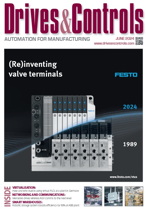- Home » News » Product News
$30 Raspberry Pi computer module targets industrial uses

A new version of the low-cost Raspberry Pi computer has been announced which is targeted at engineers developing embedded control systems. The Raspberry Pi 3 Compute Module (CM3) is based on the latest Raspberry Pi 3 architecture, with an ARM quad-core processor running at up to 1.2GHz, 1GB of LPDDR2 RAM and 4GB of on-board eMMC Flash storage. It has the same pin-out as the original Compute Module (CM1).
The module will cost around $30, or $25 for a “lite” version without on-board flash storage.
Since the Raspberry Pi was launched in 2012 as a low-cost tool to teach schoolchildren about computing, more than ten million of the tiny computers have been sold. The fourth-generation Raspberry Pi 3, released last year, brought a ten-fold improvement in performance, along with support for Bluetooth, wireless networks and the Internet of Things.
The new module will allow industrial designers to integrate Pi 3 into their designs and to develop their own profiles and I/O connections.
“The introduction of this new version Compute Module shows strong commitment from the Raspberry Pi Foundation to the industrial arena, moving beyond the platform’s original mission as an educational programming tool,” says Rob Maycroft, global product manager for Raspberry Pi at RS Components, which will manufacture and sell the new devices. “Embedded system designers can draw from the resources of the extensive Raspberry Pi community and build upon the enhanced processing capabilities of the Raspberry Pi 3 to develop exciting new applications.”

Maycroft expects to sell “hundreds of thousands” of the new modules in the first year.
“Our initiative to extend the deployment possibilities of the Raspberry Pi has already been a huge success, with many innovative applications being developed based on our first Compute Module,” adds Raspberry Pi’s originator, Eben Upton. “We expect that this more powerful second-generation device, in conjunction with existing ecosystem resources including software and accompanying hardware, will enable further penetration into industrial markets.”
The new Raspberry Pi 3 Compute Module can be bought as part of a development kit, bundled with an I/O board. This will act as a prototyping platform and a starting point for developing application-specific baseboards.





